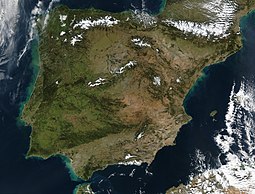-
Wildfires as a Shared Arctic Variable
By Adriana Ford In 2021, another grim milestone for climate change was reported – smoke from wildfires had reached the North Pole. Whilst it can’t yet be definitively determined if it was a historic first, it was nevertheless symbolic of the pressing issue of wildfires in the Arctic. The significance of Arctic fires is reflected […]
Continue reading -
Satellite data reveals extent of burnt areas in Europe caused by intense wildfires this summer
By Michel Valette and Haleema Misal The months of June and July in Europe have witnessed record high temperatures leading to many wildfires over the continent. Mediterranean countries are accustomed to wildfires due to ecosystem and climatic factors, but this fire season is especially intense. The heatwave in July also spread to northern Europe, […]
Continue reading -
Dr Daniele Colombaroli
It’s with great sorrow that we share news of the death of Dr Daniele Colombaroli. One of the first members of our Centre’s supervisory team, Daniele was a highly respected and much-liked colleague. We will miss his openness, his unfailing support for students, and his commitment to palaeo-research. Our thoughts are with his wife Carole, […]
Continue reading -
Extreme heat in the UK and wildfires: why we should expect it to happen again
By Theo Keeping and Olivia Haas On Friday 15th July 2022, the UK Met Office issued its first ever Red Warning for exceptional heat. Over the following two days, temperatures across the UK broke records, reaching 40.3°C in England, 37.1 °C in Wales and 34.8°C in Scotland. The weather drove a sharp response in wildfire […]
Continue reading -
A Global Perspective on Local Fire Use
by James Millington (King’s College London) If you do a Google Scholar search for ‘human’ or ‘anthropogenic’ and ‘landscape fire’ you’ll be returned over 5,000 papers. From this you might conclude that there’s lots of information available to enable a coherent global understanding of human impacts on landscape fire. Surprisingly, that’s not the case, […]
Continue reading -
Starting the conversation on decolonising fire science
Reporting from the “Decolonising Fire-Science- An Introduction” Workshop Full report available here by Abi Croker and Adriana Ford Research is a political act, and the way in which we create and communicate knowledge is deeply embedded in global power dynamics, shaped by colonial legacies as well as continued colonial thinking. Our very engagement (or lack […]
Continue reading -
Working in partnership to reduce the threat of wildfire in Scotland
Scotland may be the most northern part of the UK, but with wildfires increasing in frequency and intensity at higher latitudes, a considerable and growing threat exists. To find out more about the work Scotland is doing reduce this threat of wildfires, we spoke to Bruce Farquharson, Deputy Assistant Chief Officer in charge of the […]
Continue reading -
A novel method for using pollen records to reconstruct historic fire regimes
By Natalie Sanders and Yicheng Shen The Iberian Peninsula, home to Mediterranean beaches and mountains, pine trees and paella, sangria and siestas. But this southwestern region of Europe, mostly comprised of Portugal and Spain, is also a region known for its long history of being the most fire-affected region in southern Europe. It is […]
Continue reading -
Leverhulme Wildfires Network – sign up to our mailing list for all the latest news
We know it can be hard to keep track of all the news and events happening in the world of fire science, so to make it a little easier, you can join our Leverhulme Wildfires Network, by signing up to our mailing list. You will receive updates on all our Centre’s new publications, latest news […]
Continue reading -
Fire on Earth is not increasing
By Ol Perkins (King’s College London) From media reports, you might think that vegetation fires are rapidly increasing. But this isn’t actually true – global satellite data observe a decline in the amount of land that burns each year. Yes – fires are increasing in areas such as California, Southern Australia and the Mediterranean, but […]
Continue reading















